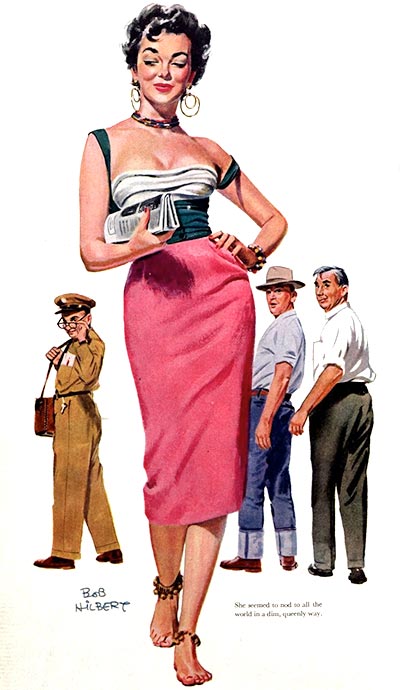Plays by Kurt Vonnegut
-
Happy Birthday, Wanda June; A Play by
Call Number: PS3572.O58 H25 1971 (Wells Library - Undergraduate Services - Core Collection Floor, 3rd Floor, West Tower)Publication Date: 1971“Richly and often pertinently funny [with] a sure instinct for the carefully considered irrelevance . . . a great deal of incidental hilarity [and] inspired idiocy.”—The New York Times
Happy Birthday Wanda June was Kurt Vonnegut’s first play, which premiered in New York in 1970 and was then adapted into a film in 1971. It is a darkly humorous and searing examination of the excesses of capitalism, patriotism, toxic masculinity, and American culture in the post-Vietnam War era. Featuring behind-the-scenes photographs from the original stage production, this play captures Vonnegut’s brilliantly distinct perspective unlike we have ever seen it before. -
Between time and Timbuktu; or, Prometheus-5, a space fantasy by
Call Number: PS3572.O58 B56 1972 (Wells Library - Undergraduate Services - Core Collection Floor, 3rd Floor, West Tower)Publication Date: 1972An experimental television play composed of excerpts from his novels and stories, Between Time and Timbuktu features Kurt Vonnegut’s special blend of scientific expertise, wit, and penetrating comment.
“Most unusual, ultra imaginative . . . a sort of cross between 2001: A Space Odyssey and Alice in Wonderland.”—Philadelphia Inquirer
The basic story line: Young Stony Stevenson wins a jingle contest and, as his prize, is blasted off into the time-space warp. The country’s first poet-astronaut thus experiences both past and future human history simultaneously. His observations on it consist mainly of dramatized selections from the author’s works. The result is a unique Vonnegut sampler cast in the form of “an excellent drama” (Pittsburgh Press). It was first aired nationally on public television stations on March 13, 1972." -
 Miss Temptation
by
Call Number: PS3572.O58 M57 1993 (Wells Library - Research Coll. - Stacks Floor, 10th Floor, East Tower)Publication Date: 1993In Kurt Vonnegut's well-loved short story, a soldier just back from Korea disrupts a small town's daily ritual—and makes a pretty girl cry. Originally published in The Saturday Evening Post in 1956, the story was collected in Vonnegut's famous 1968 anthology Welcome to the Monkey House and was reprinted online by The Saturday Evening Post in 2011. Vonnegut's story was later adapted into a one-act play by David Cooperman.
Miss Temptation
by
Call Number: PS3572.O58 M57 1993 (Wells Library - Research Coll. - Stacks Floor, 10th Floor, East Tower)Publication Date: 1993In Kurt Vonnegut's well-loved short story, a soldier just back from Korea disrupts a small town's daily ritual—and makes a pretty girl cry. Originally published in The Saturday Evening Post in 1956, the story was collected in Vonnegut's famous 1968 anthology Welcome to the Monkey House and was reprinted online by The Saturday Evening Post in 2011. Vonnegut's story was later adapted into a one-act play by David Cooperman. -
 L'histoire du soldat
by
Call Number: ML50.S92 H67 1998a (Lilly Library - Stacks)Publication Date: 1998NY Times (1993): "The drawing card on the New York Philomusica Chamber Ensemble program on Thursday evening at Alice Tully Hall was Stravinsky's "Histoire du Soldat," with a new text composed for the occasion by Kurt Vonnegut Jr. Because the text and music in a music-drama work are so closely intertwined, replacing a work's text is no small thing. In this case the gestures, language and spirit of Stravinsky's music mirror the Soldier's progress and describe the odd, supernatural circumstances in the original text by Charles Ferdinand Ramuz. For anyone who knows and loves the work, both elements make crucial points. Mr. Vonnegut has not merely updated or tinkered with the Ramuz text, but has jettisoned it entirely, offering as justification his belief that it did not adequately reflect the state of the world when the work was composed, toward the end of World War I."
L'histoire du soldat
by
Call Number: ML50.S92 H67 1998a (Lilly Library - Stacks)Publication Date: 1998NY Times (1993): "The drawing card on the New York Philomusica Chamber Ensemble program on Thursday evening at Alice Tully Hall was Stravinsky's "Histoire du Soldat," with a new text composed for the occasion by Kurt Vonnegut Jr. Because the text and music in a music-drama work are so closely intertwined, replacing a work's text is no small thing. In this case the gestures, language and spirit of Stravinsky's music mirror the Soldier's progress and describe the odd, supernatural circumstances in the original text by Charles Ferdinand Ramuz. For anyone who knows and loves the work, both elements make crucial points. Mr. Vonnegut has not merely updated or tinkered with the Ramuz text, but has jettisoned it entirely, offering as justification his belief that it did not adequately reflect the state of the world when the work was composed, toward the end of World War I."